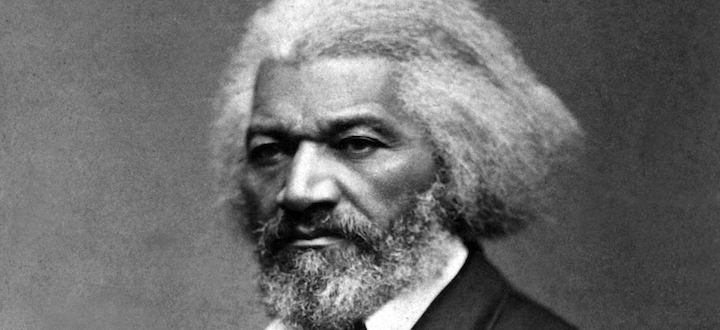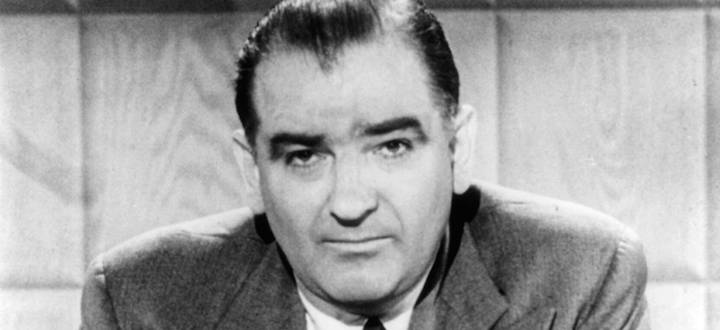America’s Next Leftist President: Donald Trump
Another leftist has won the White House.
Yes, President-elect Donald Trump is a leftist. He advocates policies that violate individual rights. That’s what it means to be a leftist.
Granted, Trump may not be as far left as Hillary Clinton on certain issues. But, then, neither is President Obama. As Marc Thiessen points out, Trump’s presidency will be in many ways “a third Obama term.”
Consider the evidence:
Trump promises to spend “at least double” what Hillary would have spent on new infrastructure projects. How will government pay for these projects? It will forcibly seize funds from citizens (via taxation or inflation), thus violating their rights.
Trump aims to increase the federal minimum wage by “some magnitude” so “the people” will have more money. This, of course, will increase rights violations by increasing the extent to which government forbids employers and employees to contract by mutual consent to mutual benefit. It will also increase unemployment by making more would-be employees unaffordable to employers. Wage control is a staple of the left.
Yes, President-elect Donald Trump is a leftist. He advocates policies that violate individual rights. That’s what it means to be a leftist.
Granted, Trump may not be as far left as Hillary Clinton on certain issues. But, then, neither is President Obama. As Marc Thiessen points out, Trump’s presidency will be in many ways “a third Obama term.”
Consider the evidence:
Trump promises to spend “at least double” what Hillary would have spent on new infrastructure projects. How will government pay for these projects? It will forcibly seize funds from citizens (via taxation or inflation), thus violating their rights.
Trump aims to increase the federal minimum wage by “some magnitude” so “the people” will have more money. This, of course, will increase rights violations by increasing the extent to which government forbids employers and employees to contract by mutual consent to mutual benefit. It will also increase unemployment by making more would-be employees unaffordable to employers. Wage control is a staple of the left.
Ayn Rand’s Theory of Rights: The Moral Foundation of a Free Society

Photo: Gary L. Friedman; Copyright © Sandra J. Shaw Studio 2011.
The traditional answers to the above questions fall into three categories: (1) Rights are moral laws specifying what a person should be free to do, and they come from God. (2) Rights are political laws specifying what a person is free to do, and they are created by governments. (3) Rights are moral laws specifying what a person should be free to do, and they are inherent in man’s nature. But each of these theories is demonstrably false, and a person or society attempting to defend freedom on such grounds will ultimately fail—as Americans are failing today.
Ayn Rand’s answers to the above questions, however, are demonstrably true—and those who come to understand her answers thereby equip themselves to defend freedom on solid, philosophic ground.
Toward understanding Rand’s theory of rights and its crucial value in the cause of freedom, let us begin with a brief overview of the traditional theories and their essential deficiencies. Then we will turn to Rand’s theory, see how it solves the various problems left unsolved by the other theories, and discover how it grounds rights in observable facts.
What Is Objectivism?

Image: Alonso Javier Torres
It is widely believed today that our moral, cultural, and political alternatives are limited either to the ideas of the secular, relativistic left—or to those of the religious, absolutist right—or to some compromised mixture of the two. In other words, one’s ideas are supposedly either extremely “liberal” or extremely “conservative” or somewhere in between. Ayn Rand’s philosophy, Objectivism, rejects this false alternative and offers an entirely different view of the world.
Objectivism is fully secular and absolutist; it is neither liberal nor conservative nor anywhere in between. It recognizes and upholds the secular (this-worldly) source and nature of moral principles and the secular moral foundations of a fully free, fully civilized society.
Individualism vs. Collectivism: Our Future, Our Choice

Frederick Douglass
Individualism is the idea that the individual’s life belongs to him and that he has an inalienable right to live it as he sees fit, to act on his own judgment, to keep and use the product of his effort, and to pursue the values of his choosing. It’s the idea that the individual is sovereign, an end in himself, and the fundamental unit of moral concern. This is the ideal that the American Founders set forth and sought to establish when they drafted the Declaration and the Constitution and created a country in which the individual’s rights to life, liberty, property, and the pursuit of happiness were to be recognized and protected.
The Vindication of Joseph McCarthy

Photo: Wikimedia Commons
In February 1950, McCarthy, a Republican senator from Wisconsin, launched a massive campaign against alleged Communists and Soviet agents working for, and perhaps spying on, the U.S. government. In Senate hearings stretching across much of the first half of the 1950s, he accused numerous U.S. government employees, including many in the State Department, of being Communists or even agents of Soviet Intelligence. He was bitterly opposed by powerful members of the Senate, by numerous high-ranking officials within both the Truman and Eisenhower administrations, and by the overwhelming preponderance of the press corps. He was finally censured by the U.S. Senate in December 1954 and died, possibly of effects of alcoholism, several years later. He was forty-eight.
Pentagon Finally Admits it Killed Women and Children in Yemen

Daughter of American citizen Anwar Awlaki, killed in US airstrike Jan. 29th
Written by
President Trump eluded the White House press corps today to helicopter off to Dover Air Force Base for the arrival of the body of Chief Petty Officer William (Ryan) Owens, who was killed in a US commando raid in Yemen over the weekend. It was the first on-the-ground US military operation authorized by President Trump since he took office on January 20th. While Trump was mourning the first American military casualty of his presidency, families in Yemen were mourning the deaths of their civilian relatives in the US raid. At least 16 women and children were killed in the US military attack on Yemen.

No comments:
Post a Comment